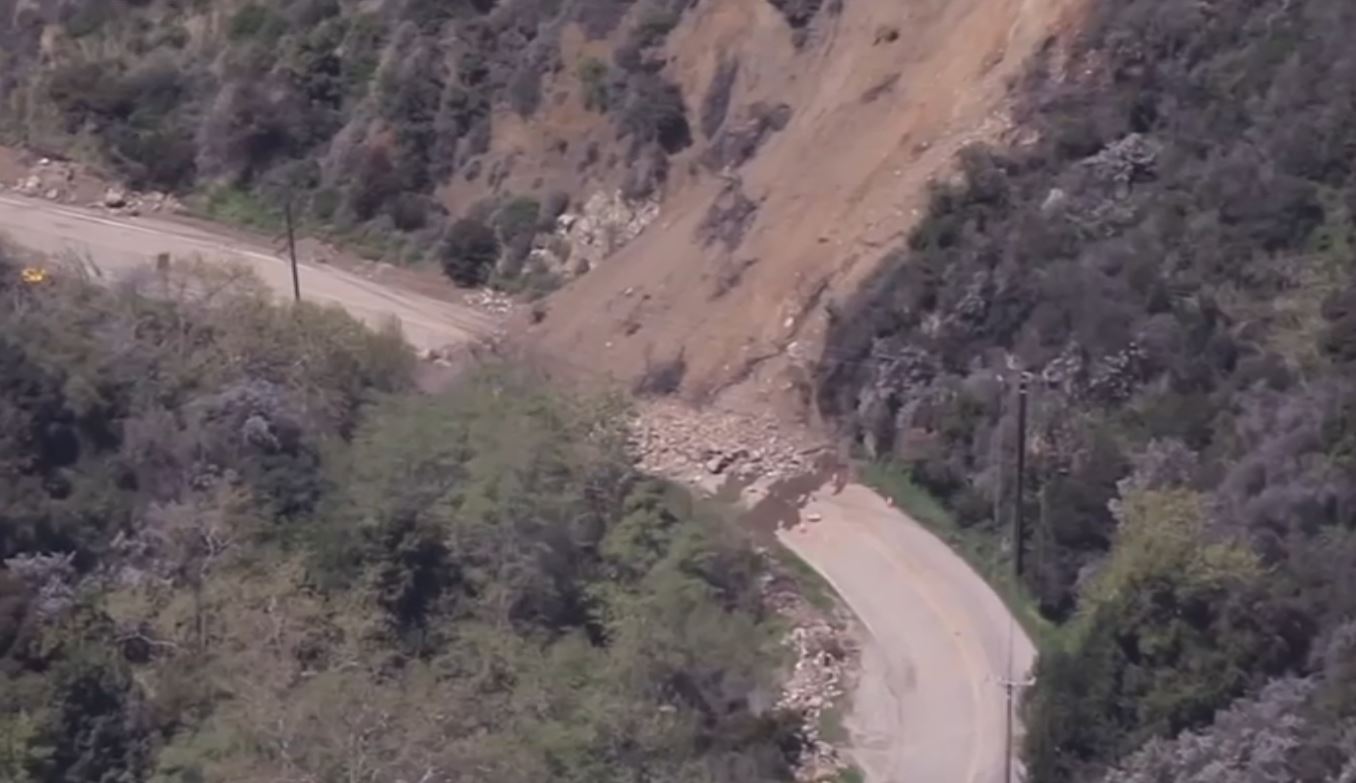Editor's Note: The voting results of each proposition will be updated below.
There were ballot measures that could change the way you eat, how much you pay for gas, and even change the time of day in California in Tuesday's statewide election.
Scroll down for results updates.
Prop 1: Veterans' Home Loans
With 23,622 of 24,312 precincts reporting (97 percent)
Yes, 3,651,760 - 54 percent
No, 3,095,915 - 46 percent
Local
Get Los Angeles's latest local news on crime, entertainment, weather, schools, COVID, cost of living and more. Here's your go-to source for today's LA news.
This proposal allows the state to sell general obligation bonds for $4 billion to finance affordable housing for low-income people, including war veterans.
Its financial impact in California is an increase in state costs to reimburse the average amount of these bonds of about $170 million per year over the next 35 years.
Those for the measure say the best part is it finds a solution, while not raising taxes.
Those against the measure say there are better ways to fix California's housing crisis. They also argue it would waste taxpayer money on interest payments.
Prop 2: Homelessness Prevention
With 23,258 of 24,312 precincts reporting (96 percent)
x-Yes, 4,136,994 - 61 percent
No, 2,629,166 - 39 percent
This proposal would allow the state to use funds from county mental health programs to fund housing for the homeless with mental issues.
The approval of this proposal would not increase state taxes and makes the existing legislation that establishes the program official.
Homeless advocates, social workers, doctors and emergency responders urge voters to say yes to Prop 2.
Those against it however, say it makes no sense to take money away from mental health services to build homes with that money.
Prop 3: Water and Environmental Projects
With 23,258 of 24,312 precincts reporting (96 percent)
Yes, 3,187,440 - 48 percent
No, 3,501,515 - 52 percent
The proposition authorizes the use of $8.877 billion in general obligation state bonds to finance aquifer and environmental projects.
The fiscal impact for the state would be the increase in costs to pay bonds of $430 million as an annual average for more than 40 years. However, the state government could save hundreds of millions of dollars annually in water-related projects in the coming decades.
Proponents say it is a measure that will guarantee safe drinking water and drought protection. But those against it say it hands money over to a lot of different organizations, but doesn't provide a new way of getting clean water.
They also say "interest payments on the bonds will double the amount that has to be repaid." They say it does nothing to solve our water shortage problems.
Prop 4: Children's Hospitals
With 23,258 of 24,312 precincts reporting (96 percent)
x-Yes, 4,098,796 - 61 percent
No, 2,666,599 - 39 percent
The fiscal impact for the state would be the increase in costs to reimburse bonds of $80 million per year over the next 35 years.
Those for the measure argue the hospital systems are like cellphones -- think of how much they've increased in technology over the last 10 years. They argue the demand for specialized pediatric care has only gone up, and hospitals are needed to meet that demand.
Those against say the proposition really only benefits the hospitals backing the measure, and that the money could be spent in a better way.
Prop 5: Home-buyers' Taxes
With 23,258 of 24,312 precincts reporting (96 percent)
Yes, 2,815,851 - 42 percent
x-No, 3,909,288 - 58 percent
The approval of this prop would allow all homeowners over 55 years of age, of any property contaminated or affected by a natural disaster, and severely disabled owners, to be eligible for property tax savings should they move to another home.
The fiscal impact would be for schools and local governments, which would lose more than $100 million per year in property taxes.
It essentially the "moving penalty."
Those against it say it cuts "$1 billion in local revenue from public schools, fire, police, health care and other services" but doesn't build any new housing. They say it's going to make it harder for cities to pay for schools while giving a nice tax break to the wealthy.
Prop 6: Gas Tax
With 24,312 of 24,312 precincts reported (100 percent)
Yes, 3,141,881 - 45 percent
x-No, 3,857,819 - 55 percent
Prop 6 would have repealed a 12-cent gas tax and an increase in vehicle registration that was approved last year to fund road fixes and better transit programs. The aim was to pay for $5 billion a year in improvements, and raise $52 billion over a decade for road repairs. The gas tax took effect last November.
Construction industry and firefighter unions opposed repealing the measure.
Former Republican councilman Carl DeMaio proposed it, saying the cost of living in California is outrageous enough as it is.
"Everything in California is so much more expensive and the question is why," he once said.
Voting no keeps the tax right where it is.
Opponents say since cars are becoming more energy efficient and using less gas, there won't be enough funds to support the program.
Opponents contend there aren't enough funds to keep up with the transit needs of California's 40 million people. Over the last two decades, automobiles have become more fuel efficient — a boon for the environment but a challenge to transportation budgets as drivers need less gasoline.
Prop 7: Daylight Saving Time
With 23,258 of 24,312 precincts reporting (96 percent)
x-Yes, 4,014,400 - 60 percent
No, 2,694,858 - 40 percent
Daylight saving time may not seem that big of a deal to most Californians, but it’s a divided issue.
If Californians vote yes, they’d be asking to end daylight saving time, meaning no "spring forward" nor "fall back." But voting yes wouldn’t make it a done deal -- the measure would still need to clear the hurdle in the federal government. The measure would need a two-thirds vote from the Legislature.
Basically, the time wouldn’t change twice a year, like in other states that don’t follow Daylight Saving Time: Hawaii and Arizona (except for in Arizona’s Navajo Nation).
Voting no would mean that everything would stay how it is – you lose an hour in spring, and gain an hour in fall.
Some proponents say the idea is very outdated. It all started during WWI as an energy saving program. They argue that studies have shown that daylight saving time may actually increase electricity use in the summertime. They also argue that daylight saving time would cause more pedestrian crashes because the sun sometimes doesn’t rise until 8 a.m. in winter.
Those who are against the measure say it’s too much change, and Californians are used to switching their clocks back and forth.
Prop 8: Dialysis Clinics Refunds
With 24,312 of 24,312 precincts reporting (100 percent)
Yes, 2,660,633 - 38 percent
x-No, 4,260,758 - 62 percent
Proposition 8, while at first glance is not as controversial as the gas tax or daylight savings props, actually is a source of heated debate. If passed, it would cap profits at kidney dialysis clinics by using a formula.
Proponents of 8 say big dialysis companies are netting monster profits without putting enough money back into sanitation and patient care. Those in support, like the Democratic Party and veterans, say the proposition would stop the companies from overcharging, and would help provide quality care for patients.
But those against the prop – which includes nurses, doctors and physicians – say many clinics would be forced to close if the prop passes. Many people without functioning kidneys depend on the clinics, and those against the prop say it would increase costs for tax payers, and reduce access to care because clinics would have to close.
Prop 10: Regulating Rent
With 24,312 of 24,312 precincts reporting (100 percent)
Yes, 2,675,378 - 38 percent
x-No, 4,310,298 - 62 percent
This was set to be a big source of debate in November. Voting yes would have meant state law would not limit rent control laws in cities and counties. What that means is it would establish rent control authority in communities, in hopes to keep people in their homes and reduce the homeless population.
But those opposing the measure say that if state law is not allowed to continue overseeing rent control, it would actually make the housing crisis worse. They argue Prop 10 is bad for homeowners because it allows the regulation of single family homes and would allow more fees on top of rent.
Those against it say it will hurt homeowners because it will lower real estate values. They also say it would limit new construction and cut the already-choked housing supply in California. Opponents also say landlords who managed smaller properties would struggle or be pushed out.
Prop 10 repeals Costa-Hawkins Housing Act, and it is one of the most expensive propositions on the ballot.
According to the state, renters in California already spend more than half their income on rent.
Those in favor say Prop 10 would help people getting pushed out of their homes, because it would control how much landlords increase rent per year as well as regulate how much they are asking of new renters.
Prop 11: On Call Ambulances
With 23,258 of 24,312 precincts reporting (96 percent)
x-Yes, 4,019,252 - 59 percent
No, 2,744,992 - 41 percent
With Prop 11, ambulance workers would have to stay on call during their paid lunchbreaks so they could respond to 911 calls. It would also give them more training. Proponents argue it's a proposition that would save lives.
Voting no means EMT's and paramedics would have to remain unreachable while on a paid break, and cannot provide care, even if they are the closest ambulance available.
State Assembly Member Freddie Rodriguez argues however that the proposition is not what it seems.
Rodriguez says it would allow private companies to get out of paying millions in wages.
Prop 12: Ban Selling Meat From Confined Animals
With 23,258 of 24,312 precincts reporting (96 percent)
x-Yes, 4,126,366 - 61 percent
No, 2,635,545 - 39 percent
A yes vote requires farmers to provide more space to caged animals used for meat or food, like egg-laying hens, pigs, and calves. It would ban the sale of meat and eggs from animals in cages that do not meet specific measurements.
If it sounds familiar, it's because in 2008, Prop 2 was passed preventing caged animals from being raised in confinements so small they couldn’t move.
But it’s back in the form of Prop 12, because out-of-state farmers aren’t subjected to the same requirements. Also, there were no specific measurements in Prop 2.
Hens would also have to be totally cage free by 2022.
Starting in 2020, a calf would have to be given at least 43 square feet of floor space.
Pigs would need 24 square feet starting in 2022.
In 2020, egg-laying hens, would need 1 square foot of floor space each – the cages would be totally gone by 2022.
Costs would probably rise for the foods produced by using meat and eggs from these animals, the state's nonpartisan Legislative Analyst's Office found.
The Association of California Egg Farmers says it could cause a shortage of eggs for sale because farmers would have to make a lot of unforeseen changes to structures.



